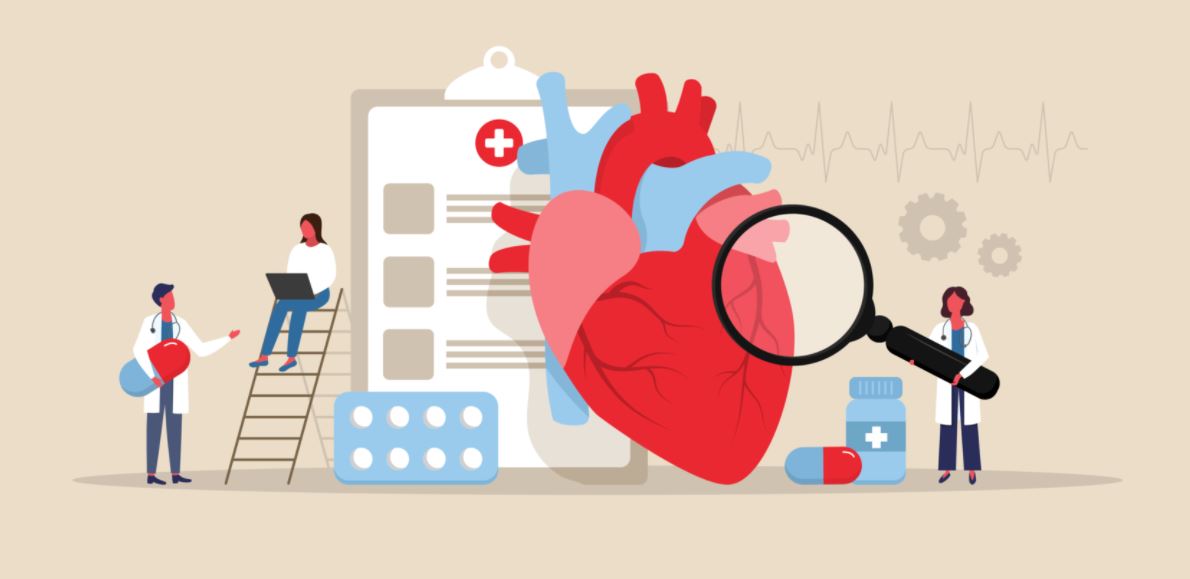Expert Advice: Healthy Heartbeats
- Category: Heart & Vascular
- Posted On:

Valley Health’s Advanced Valve Center Delivers Top-Notch Cardiac Care
The human heart beats about 100,000 times a day, its valves swinging like tiny doors to keep blood flowing in the right direction. Over time, heart valves can degenerate and stiffen—called stenosis. When valves cannot open properly, patients can become fatigued and short of breath, and the situation can become life-threatening.
The good news: Valley Health’s Advanced Valve Center employs a multidisciplinary team including cardiothoracic surgeons and cardiologists who specialize in structural heart problems, valve pathology, interventional therapies, and imaging, as well as a vascular surgeon and anesthesiologists. They collaborate to provide minimally invasive procedures, allowing patients to return to their normal activities relatively quickly.
A common diagnosis is severe aortic stenosis, in which the stiffened valve cannot open appropriately, forcing the heart to work harder. Medication may help, but a leaky aortic valve is ultimately a mechanical problem that may require valve replacement surgery.
Today, there are alternatives to open-heart surgery, such as the TAVR (transcatheter aortic valve replacement) procedure, in which a tiny cut is made near the patient’s groin. A catheter carrying a prosthetic tissue valve is inserted, then travels through the blood vessels to the heart. “Once we determine that TAVR is an option,” says Ernesto Jimenez, MD, Cardiovascular Surgery Program director and co-director of the Structural Heart Program, “it’s greater than 99.9 percent that TAVR is going to be successfully deployed.” Most patients spend one day in the hospital and are up and moving within three days, compared to an eight-week recovery for open-heart surgery.
Another approach, the SAVR (surgical aortic valve replacement) procedure, involves replacing the aortic valve via a small incision in the chest, while using cardiopulmonary bypass. Patients stay in the hospital for about five days and avoid heavy exercise or lifting for about four weeks.
Strategy is key, so before surgery, the Valve Center’s medical team meets to discuss each patient and map a plan. “We look at their history, the arteries where we need to deploy the valve, the heart, the calcium within the aorta, and the aortic valve itself.”
Dr. Jimenez and his colleagues also use an innovative procedure called MAZE to treat atrial fibrillation, in which the heart’s upper and lower chambers—the atria and ventricles—beat out of rhythm. In the procedure, the surgeon uses either radiofrequency ablation (electric current) or cryotherapy (freezing) to create a bit of scar tissue, helping reroute the heart’s impulses. MAZE is used when nonsurgical procedures aren’t sufficient, and for patients who also have either coronary disease or mitral valve disease, succeeding in 80 percent of patients.
The team also treats leaky mitral valves. As with the aortic valve, Dr. Jimenez and his colleagues can perform minimally invasive surgical valve repair through a small incision in the chest or can direct a guidewire through the femoral vein and up into the left atrium, where a mitral clip is placed to reduce leaking.
“The great thing is that these days we’re able to do minimally invasive valve procedures,” Dr. Jimenez says. “You don’t have to have that big open incision and patients recover quicker and feel better sooner.”
Members of Valley Health’s multidisciplinary structural heart team provide critical contributions to the evaluation and treatment of structural problems of the heart tissue or valves.
Advanced Valve Center physicians:
- Ernesto Jimenez, MD, cardiothoracic surgeon, co-director of the Structural Heart Program
- Wayne Batchelor, MD, nationally known interventional cardiologist, acting co-director of the Structural Heart Program
Additional members of the structural heart team include:
- Jeffrey Skiles, MD, cardiologist
- Melanie Mattson, MD, cardiologist
- Claudia Viens, MD, anesthesiologist, section head of cardiac anesthesia
- Ayorinde Akinrinlola, MD, vascular surgeon
Visit valleyhealthlink.com/heart or call the Valley Health Advanced Valve Center (540-536-4000) to learn more.
Note: This article originally appeared in Valley Health’s HealthLINK magazine, Fall 2021.


